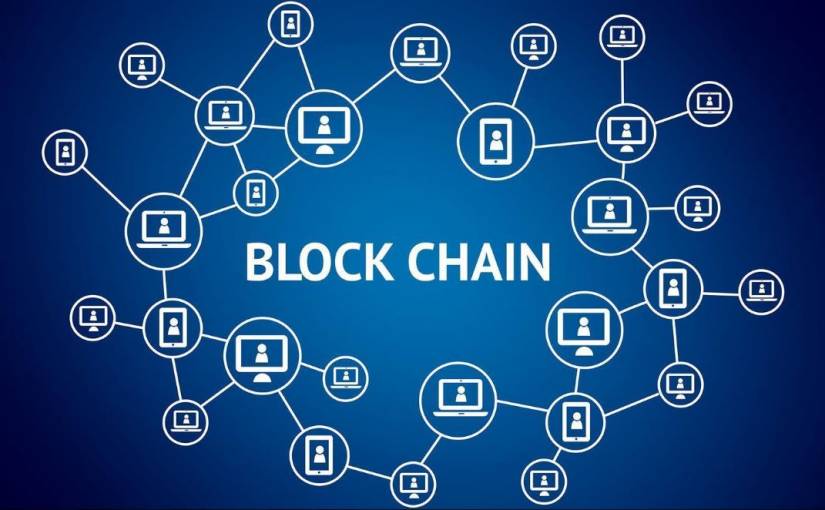For years the healthcare industry has had to deal with continual data breaches, increasing hospital costs, and inefficient practices. These problems can prove extremely expensive and highlight a need for greater efficiency and innovation in the healthcare industry.
Is BlockChain the New Buzzword in Healthcare?
Healthcare is one area where blockchain technology can improve the situation. From handling mass-scale pandemics to storing and securing patient data. Blockchain can improve the entire healthcare experience because the tamper-resistant and decentralized nature of blockchain technology enables it to address various issues prevalent in healthcare.
Medical Research
Electronic health records are becoming more and more proliferate in healthcare systems since they allow automatic updating and sharing of each individual patient’s medical information.
However, their scope is limited to sharing within an organization or network of organizations only. With the advent of blockchain technology, this information could be organized so that only non-personally identifiable information sits on the topmost layer of the blockchain.
Changing the identifiable information would give researchers and other organizations access to this extensive pool of data, with cohorts of millions of patients. The capability to access such a vast amount of data would greatly promote clinical research, improve public health reporting, and adverse event reporting and identification.
This is one reason why the Caribbean medical university, and other university-level students are encouraged to dabble in this technology.
Securing the Patient Data
From 2009 to 2017, over 176 million data breaches occurred concerning healthcare records. Perhaps one of the most significant applications of blockchain technology is ensuring the safety and security of medical data and records.
The healthcare industry often suffers from data breaches. Of course, credit card and banking information is often the target of breaches — but information has been obtained from health records, including specialized testing such as genome records.
There is a dire need to protect the integrity of sensitive patient data.
Security applications would greatly benefit from blockchain’s ability to keep an incorruptible and transparent log of all patient data. Not to mention, blockchain technology is as private as it is transparent, and can successfully conceal the identity of any individual with the help of complex and unimpeachable codes.
Blockchain technology maintains a decentralized log of sensitive patient data.
With blockchain, healthcare providers, physicians, and patients can share the information in a safe and efficient manner. For instance, BurstIQ’s platform’s advanced blockchain technology enables the company to improve how medical data is shared and used in compliance with stringent HIPAA rules.
By keeping a comprehensive and updated record of each patient, they can prevent the abuse of prescription drugs.
Vaccine supply chains
Blockchain technology can provide the ultimate answer to the challenging process of global vaccine distribution and introduce trust and efficiency in the vaccine supply chain process.
By offering a real-time and accurate view of inventory, this burgeoning development can optimize vaccine allocation. The greatest benefit of this technology is to mitigate fraud in vaccine supply and distribution.
According to CDC, almost 30% of all vaccines produced in developing countries are counterfeit — (not speaking of the current COVID-19 vaccine).
To counter this issue, vaccine distributors are looking to blockchain technology to tie an unforgeable and irreplaceable unique digital identifier to each medicine or vaccine most susceptible to fraud.
The identifier should be hard to clone or transfer between objects. For instance, markers such as fabric patterns or branding on pills can prove the authenticity of products and help keep the vaccine supply chain safe.
For instance, the company, Chronicled keeps track of chain-of-custody via blockchain networks. The networks help pharmaceutical companies guarantee that their medicines arrive safely, and they raise flags on any suspicious activity — such as drug trafficking.
Seamless Switching of Patients between Providers
With the help of blockchain technology, patients would be able to unlock and share their health data with other providers or organizations. The information stored on the blockchain could be accessed via a shareable private key.
This process could make health information technology collaborative between different users.
Advancement in Genomics
Genomics holds immense potential in improving the future of human health. What was once a far-fetched dream has now become a scientific and financial reality, thanks to blockchain technology.
It used to cost an upward of 1 billion dollars to process a human genome, but now it costs as little as $1000.
A lot of companies are conducting DNA tests that have the ability to unlock clues to our health. Blockchain can greatly complement the field of genomics via its ability to house billions of genetic data points safely and securely.
Pharmaceutical and biotech companies used to spend billions of dollars each year acquiring genetic data from third parties. In contrast, now, companies can incentivize users to safely sell their encrypted genetic data to this wide pool of data, knowing that their information is safe.
Scientists can access this valuable Genomics data faster than ever before.
For instance, Nebula Genomics is using blockchain technology to streamline the study of genetics and make it more affordable. Companies can even share their medical and genomic data with a global community of scientists for building better predictive models.
Preventable Mistakes in Healthcare
Miscommunication between medical professionals can cost the healthcare industry an arm and a leg. It can be quite bothersome and time-consuming to obtain access to a patient’s medical records. The lag time can delay quality care and drain staff.
The decentralized nature of blockchain-based medical records makes them easily accessible by pharmacists, hospitals, lab technicians, public health authorities, and physicians.
In a nutshell, blockchain technology speeds up diagnoses, automates administrative processes, and helps healthcare organizations devise personalized care plans. Open access to pertinent medical information enables better coordination between healthcare professionals and accelerate care.
Many tech-savvy companies are leveraging blockchain medical records to create shared databases.
For instance, SimplyVital helps create an open-source database with the help of blockchain technology to allow healthcare providers to gain access to patient information and coordinate care in a timely manner.
Smart contracts for insurance and supply chain settlements
Blockchain-based systems are cropping up in the healthcare industry and bringing together various players in the healthcare industry. We see healthcare providers, insurers, wholesalers, medical device OEMs, and pharmaceutical companies under one umbrella.
Each of these entities can authenticate its credibility.
Each company or healthcare provider can track transactions of equipment and services, log contracts, and keep track of payment settlements. These systems facilitate more secure shared contracts between manufacturers, distributors and healthcare organizations.
Having contracts stored on blockchain ledgers inevitably leads to fewer disputes over payments, claims, and schedules.
Due to vacillating pricing structures, more than one million chargeback claims are made between these companies every year. Five percent of claims end up in lengthy disputes, which often necessitate manual resolution.
These smart contracts would also benefit patients in terms of medical insurance contracts. Making digital data easily accessible also helps insurance providers optimize health outcomes.
Disease Prevention
The Centers for Disease Control and Prevention (CDC) leverages blockchain-related use case-control and prevention of diseases and pandemics.
Essentially, the U.S. entity maps out blockchain usage for timestamping of records to detect disease outbreaks in real-time.
CDC has acquired a surveillance system for public agencies that safely and accurately gather real-time patient and prescription data.
With the use of blockchain technology, many gigantic healthcare system costs can be reduced — thereby lowering the overall health costs for everyone.


















